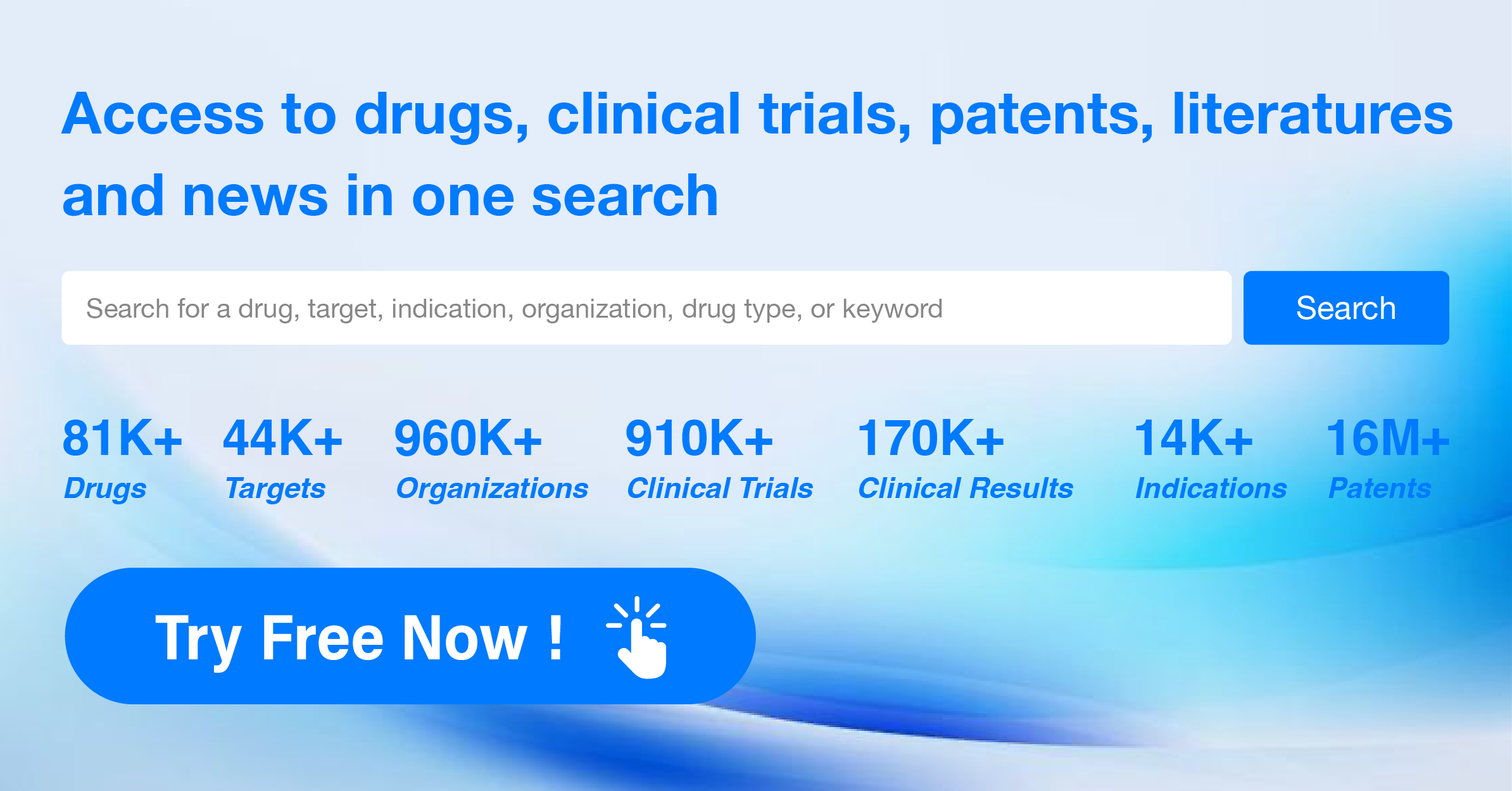Pharma Frontiers: Daily Digest of Global Pharmaceutical News - May 7
1.CG Oncology's Oncolytic Virus Therapy Cretostimogene Shows Positive Results in Phase III Study
On May 3rd, CG Oncology announced that its investigational oncolytic virus therapy cretostimogene (CG0070) demonstrated efficacy and safety as a monotherapy in a Phase III study for treating high-risk non-muscle invasive bladder cancer (NMIBC) patients who are unresponsive to Bacillus Calmette-Guérin (BCG) therapy. The data showed that 75.2% of patients achieved a complete response (CR), with 29 patients maintaining CR for over 12 months. Cretostimogene is a first-in-class (FIC), engineered, conditionally replicating oncolytic immunotherapy administered through bladder infusion. It is designed to preferentially replicate in cells with retinoblastoma (Rb) gene pathway defects, which are present in most urothelial cancers, and to trigger an anti-tumor immune response. Cretostimogene contains a cancer-specific promoter E2F-1 and a GM-CSF transgene. CG0070 is designed to work in two important and complementary ways. First, it can specifically identify and replicate within tumor cells, leading to tumor cell lysis and immunogenic cell death. Second, the rupture of cancer cells can release tumor-derived antigens, which, together with GM-CSF, can stimulate a systemic anti-tumor immune response, including the body's own white blood cells, to achieve tumor killing. In December last year, the U.S. FDA granted cretostimogene Fast Track designation and Breakthrough Therapy designation. The ongoing study of cretostimogene, named BOND-003, is a single-arm, Phase III clinical trial designed to evaluate the efficacy and safety of cretostimogene monotherapy in treating high-risk NMIBC patients with carcinoma in situ (CIS), with or without Ta or T1 papillary tumors, who are unresponsive to BCG therapy.
2.AstraZeneca's antibody therapy ALXN2220 injection initiates phase III clinical trial in China
Recently, the Chinese Drug Clinical Trial Registration and Information Publicity Platform announced that AstraZeneca has initiated an international multicenter (including China) phase III clinical study of ALXN2220 injection for patients diagnosed with wild-type or hereditary transthyretin-mediated amyloidosis cardiomyopathy (ATTR-CM) in adults. According to public information, ALXN2220 (also known as NI006) is an anti-transthyretin amyloidosis (ATTR) monoclonal antibody, a cardiac amyloid "depletor". ALXN2220 is a humanized monoclonal antibody in development, specifically designed for phagocytic immune cells to clear ATTR. The product targets misfolded transthyretin specifically, aiming to treat the pathological cause of ATTR-CM by clearing amyloid fibril deposits in the heart, and is expected to treat patients with advanced ATTR-CM. Preclinical models have demonstrated that the product can induce the clearance of pathological ATTR. The results showed that ALXN2220 maintained good safety at the highest tested dose, with no apparent dose-limiting toxicity or drug-related serious adverse reactions observed. The pharmacokinetic characteristics of the product were consistent with IgG antibodies, and no anti-drug antibodies were detected. At doses of at least 10 mg/kg, cardiac amyloid deposits in patients (detected by scintigraphy or cardiac magnetic resonance imaging) were significantly reduced within 12 months. The levels of NT-proBNP and troponin T, biomarkers used to measure cardiac stress and cardiomyocyte death, were also decreased.
3.Junshi Biosciences Initiates Phase III Clinical Trial of PD-1 Subcutaneous Injection for First-Line Treatment of Non-squamous NSCLC
Recently, the Drug Clinical Trial Registration and Information Publicity Platform showed that Junshi Biosciences has initiated a multicenter, open-label, randomized controlled phase III study of its JS001 subcutaneous injection (JS001sc) to evaluate the pharmacokinetic characteristics, efficacy, and safety of JS001sc combined with standard chemotherapy vs. JS001 combined with standard chemotherapy for the first-line treatment of recurrent or metastatic non-squamous non-small cell lung cancer (NSCLC). The study plans to enroll 356 patients, with the primary endpoints including the measured trough concentration (Ctrough) at the end of the first cycle and the area under the drug-time curve from 0 to 21 days (AUC0-21day). Secondary endpoints include objective response rate (ORR), progression-free survival (PFS), 6-month PFS rate, disease control rate (DCR), duration of response (DoR), safety, PK parameters, etc. In April this year, Junshi Biosciences presented the phase I study of JS001sc for advanced nasopharyngeal carcinoma at the AACR Annual Meeting, with 38 patients with recurrent or metastatic nasopharyngeal carcinoma enrolled in the clinical study. PK analysis results of the first cycle showed that the exposure (AUC0-21 days and Ctrough) of 360 mg JS001sc (Q3W) was equivalent to that of 240 mg JS001 (Q3W). In addition, the ORR was 100%, 92.3%, and 92.3% in the 240 mg, 360 mg, and 480 mg JS001sc groups, respectively. As of November 20, 2023, 71.1% (27/38) of patients still had sustained tumor remission. No new safety signals were found in the study, and the incidence of grade ≥3 adverse events (AEs) was 76.3%. Overall, the launch of subcutaneous injections can not only help companies extend the patent period of brand-name drugs but also significantly reduce the treatment time for patients and save time costs.
4.Johnson & Johnson's Prostate Cancer Treatment Reaches Phase 2 Clinical Primary Endpoint, with 100% of Patients Experiencing No Recurrence within Two Years!
Recently, Johnson & Johnson announced the results of an open-label, single-arm phase 2 clinical trial called Apa-RP. The study evaluated the efficacy of Erleada (apalutamide) and androgen deprivation therapy (ADT) as adjuvant treatment in patients with high-risk localized prostate cancer (HRLPC) who underwent radical prostatectomy (RP). The study found that patients receiving this treatment regimen had a 0% biochemical recurrence (BCR) rate within 24 months after RP. In the United States, approximately 300,000 people are diagnosed with prostate cancer each year, with up to 40% of patients classified as high-risk. Disease recurrence remains a significant problem in prostate cancer. Up to 50% of patients experience recurrence within ten years after surgery, which poses a significant risk of disease progression and death. This study met its primary endpoint, demonstrating that patients who received 12 months of Erleada plus ADT as adjuvant therapy following RP had no confirmed biochemical recurrence during an additional 12-month follow-up period. Moreover, the serum testosterone recovery rate (≥150 ng/dL) at 12 months was 76.4% (95% CI, 65.0–84.5) with this treatment regimen. The safety profile of Erleada in combination with ADT was consistent with previous data: 99.1% of patients reported treatment-emergent adverse events (TEAEs), with 22.2% of events being grade 3-4. Erleada is an androgen receptor inhibitor indicated for the treatment of non-metastatic castration-resistant prostate cancer (nmCRPC) and metastatic castration-sensitive prostate cancer (mCSPC). It received FDA approval in the United States for the treatment of nmCRPC in February 2018 and for mCSPC in September 2019.
5.Cornerstone Pharmaceutical to Unveil Latest Research Data on ROR1-Targeted ADC for the First Time
On May 6th, Cornerstone Pharmaceutical announced that the latest research data on CS5001 (ROR1-targeted ADC), a product from the company's R&D pipeline 2.0, will be presented in poster form at the 2024 American Society of Clinical Oncology (ASCO) Annual Meeting. This year's ASCO Annual Meeting will be held in Chicago, USA, from May 31st to June 4th, 2024. CS5001 is an antibody-drug conjugate (ADC) targeting receptor tyrosine kinase-like orphan receptor 1 (ROR1), initially co-developed by Korean biotech companies LegoChem Biosciences (LCB) and ABL bio. In October 2020, Cornerstone Pharmaceutical reached a licensing agreement with LCB for the development and commercialization of CS5001. Under the terms of the agreement, Cornerstone Pharmaceutical obtained exclusive development and commercialization rights for CS5001 in all global regions outside of South Korea. CS5001 utilizes a tumor-specific activated pyrrolobenzodiazepine (PBD) prodrug payload and linker. Once CS5001 reaches the tumor and is internalized by tumor cells, its linker is cleaved by specific enzymes highly expressed in tumor cells, releasing the PBD prodrug in the lysosome. The PBD prodrug is then activated within the tumor cells, thereby killing them. In several preclinical cancer models, CS5001 has demonstrated significant tumor inhibition and exhibited favorable serum half-life and pharmacokinetic characteristics. Additionally, CS5001 employs site-specific conjugation technology to achieve a precise drug-to-antibody ratio (DAR), facilitating homogeneous production and large-scale manufacturing. At this year's ASCO Annual Meeting, Cornerstone Pharmaceutical will present a phase 1a/1b, global, multicenter, first-in-human study designed to evaluate the efficacy of CS5001 in treating patients with advanced solid tumors and lymphomas.
6.Drug Farm to Unveil Clinical Data on New Chronic Hepatitis B Drug
Recently, Drug Farm announced that the data from their phase 1b study DF-006-1001, which evaluates the company's self-developed ALPK1 agonist DF-006 immunomodulator for the treatment of chronic hepatitis B patients, will be presented as a "late breaking poster presentation" at the 2024 European Association for the Study of the Liver (EASL) conference. The 2024 EASL conference will be held from June 5th to 8th in Milan, Italy. Drug Farm is a biotechnology company dedicated to developing "first-in-class" drugs from target discovery, focusing on pioneering innovative therapies for hepatitis B, cancer, cardiovascular and kidney diseases, as well as autoimmune diseases such as ROSAH syndrome. According to reports, the company's IDInVivo+ platform combines groundbreaking technologies in genetics and artificial intelligence to discover new treatments, allowing direct selection of gene targets in immunocompetent model animals. DF-006 is a potential "first-in-class" ALPK1 agonist immunomodulator developed by Drug Farm, which can effectively stimulate local innate immunity in the liver. DF-006 has successfully completed single and multiple ascending dose evaluations in healthy volunteers and has completed multiple ascending dose evaluations in virologically suppressed HBeAg-negative chronic hepatitis B (CHB) patients.




